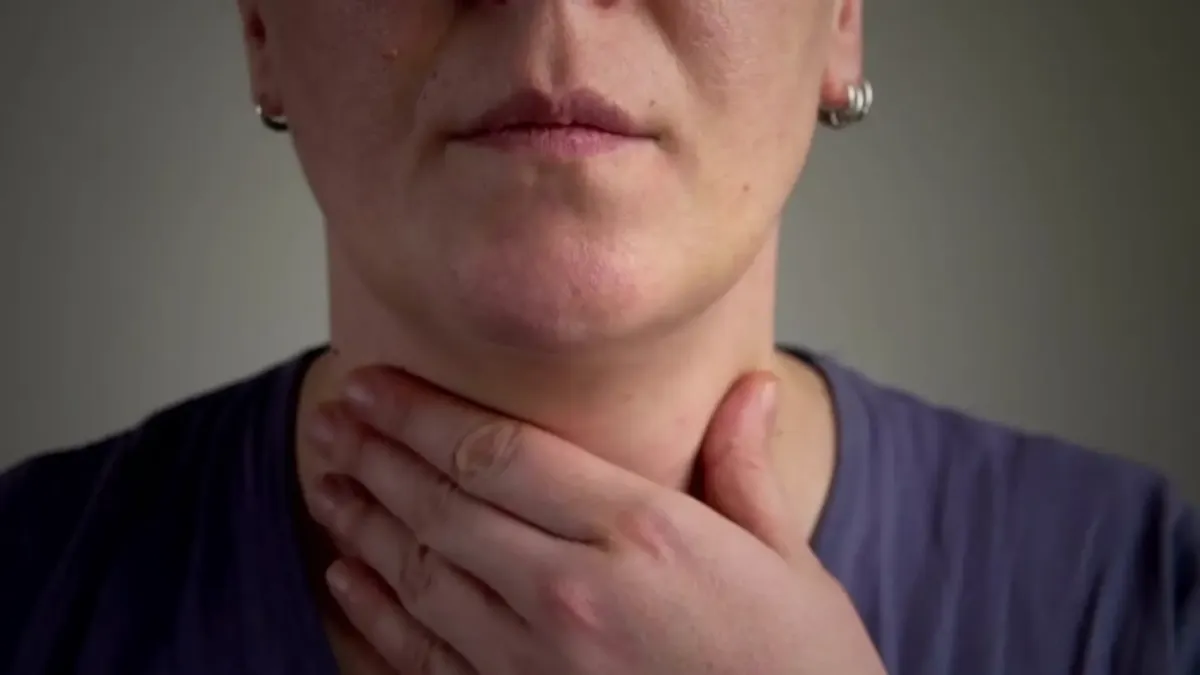MENU
BLOG

Treating Sex Hormone Imbalances
Sex hormones are that are involved in the regulation of sexual development and reproduction. The primary sex hormones are estrogen, progesterone, and testosterone. Men and women have all of these, just in different amounts and ratios...
When men and women have low energy caused by an imbalance in their sex hormones, it is usually from different hormones. For men, it is usually due to a testosterone deficiency. For women, it is usually due to estrogen and/or progesterone imbalances.

Sex Hormones & Low Energy
The symptoms of menopause are no joke. They are incredibly uncomfortable and can change the quality of your life significantly. When a woman comes to me with menopausal symptoms, she is usually pretty desperate for relief. I use both natural and pharmaceutical therapies to get her that relief.

Treating Thyroid Disease
I am a big believer in natural medicine. It can be very powerful and work very well. I prefer to use it as long as the natural treatment is safe and strong. Unfortunately, when treating low thyroid, we usually need both the natural and the prescription treatments. In college, I learned from playing the card game euchre not to “send a boy to do a man’s job.” In medicine, this means using the treatment that you know will work. If I think a natural treatment will work, but I know that a medication will work, I should use the medication as long as there are no significant side effects. This is because I want to make sure you get results right away so that you can get your life back

Treating Thyroid Disease
Thyroid disease is one of the most common health problems we face today. The majority of people with thyroid dysfunction have hypothyroidism. Hypothyroidism (“hypo” means low) is a condition where the amount of thyroid hormone in your body is less than what is needed for optimal function. According to the American Thyroid Association, more than 12 percent of the US population will develop a thyroid condition during their lifetimes, and more than half will be unaware that they have a problem. Women are five to eight times as likely as men to develop thyroid problems.

Advanced Adrenal Recommendations
Last week, I went over the recommended supplements to treat Adrenal Fatigue. This week I’ll go over adrenal recommendations as well as a plan to reduce stressors.
Treating the physical symptoms is only the first step. Once you start to feel better, it’s important to begin addressing the causes of the problem: the sources of stress that compromised your adrenals in the first place.

Testing & Supplement Options for Adrenal Fatigue
Last week we discussed the main symptoms as well as the causes of adrenal fatigue. This week, I will focus on testing and supplement options for treatment.
If you have most of the symptoms listed last week, you probably have adrenal fatigue. However, how do we test for adrenal dysfunction?

How Adrenal Fatigue Causes Chronic Fatigue
This week I will discuss how adrenal fatigue is a primary cause of chronic fatigue.
It's estimated that up to 80% of adults experience adrenal fatigue during their lifetimes, yet it remains one of the most under-diagnosed illnesses in the United States. Conventional medicine does not yet recognize adrenal fatigue as a distinct syndrome

Food Allergies & Low Energy
Food allergies can cause almost any symptom the body can manifest, including low energy. The gastrointestinal tract maintains a delicate balance of good bacteria, specialized immune cells, and various neurological and hormonal activities. In fact, 80% of your immune system resides in your gut, so anything you put in your mouth can trigger a reaction. Once your digestive system detects what it considers a “foreign particle,” your immune system reacts, and the inflammation that follows creates pain and dysfunction.

Food and Your Energy
Food is a touchy subject, especially if you’re not feeling well. We have a lot of emotional attachments to it, and it can give us joy at times when nothing else can. However, food allergies play a significant role as a cause and contributor to fatigue and, as a doctor, I have seen amazing improvements in the health of my patients when they change their food choices.

Fix Your Emotional Health - Part 1
I asked my wife, Stacy, to write a series of posts on how to fix your emotional health. Stacy had chronic fatigue for three years, and the most powerful treatments she found were ones that helped her to change her emotional landscape and recondition her stress response. Through various practices and therapies, she targeted her brain and her emotions and became aware of the role emotional distress played not only in getting sick but also in sabotaging her healing. Ultimately, she reclaimed her energy and went on to achieve more happiness than at any other time in her life. Now as a lifestyle and personal growth coach, she helps others connect with their wholeness and find their way through chronic illness. – Dr. Evan
The Astonishing Connection Between Emotions and Fatigue
By Stacy Hirsch, MES, ACC, CDWF
“The number one root of all illness, as we know, is stress.” ~ Marianne Williamson
When I became sick with chronic fatigue, I was no stranger to stress, although, at the time, I probably wouldn’t have labeled what I was going through as stressful. It felt normal and not that different from how everyone else was living. Mentally, I identified with my life as an adventure or a puzzle to be solved, but the more telling sign was how I was relating emotionally.
In the five years before I became ill, I lived in six different cities in four states, traveled around the world, completed a 150-mile trek in Nepal, started a new business, ran a marathon, trained as a yoga teacher, completed three ten-day silent meditation retreats, went gluten-free, and bought my first home, a 1924 fixer-upper. These were all experiences I chose with great intention and enthusiasm.
If my life had only followed the trajectory I had set, then perhaps I would have never become ill. But that isn’t how reality works. Running at equal pace alongside my goals and plans were the relationship missteps; two painful breakups with the same guy, the purchase of a cute San Diego bungalow that fell through when my engagement ended, the rebound relationship that crushed my self-esteem, and the real-life challenges of being self-employed and trying to grow my business while living and working from the construction project I called my home. These perceived setbacks and failures weighed heavily on my mind and heart.
Emotionally, I begin to relate to the adversity I was experiencing with fear, worry, and a sense of failure. On a deeper, unspoken level, I began to doubt my ability to successfully navigate my life, as I focused on all the ways I felt deficient. With each setback, I felt more and more disconnected from the life I wanted to live. My emotions became heavier and more burdensome, and I became more reactionary to the world around me.
Although my emotional suffering was obvious at times, I didn’t characterize it as stressful. It was suffering, and we all suffer. I didn’t have a complete understanding of what stress was or how the body responds to perceived threats – from the mind or from the environment. I believed if I was determined, I could power through any challenge or setback and override any difficult emotion with sheer will. I wasn’t aware that my stress response system was still operating on programming that was wired as far back as the womb. (I will talk more about this when I discuss stress and emotional well-being.) As life continued to present more obstacles, my old wiring became more and more active, and my reactions intensified as I began to see threats all around me.
When Positive Becomes Negative
Additionally, I failed to notice how the parts of my life that I labeled as more positive – a new home, a promising career, travel to foreign countries – were also contributing to my overall stress burden. It wasn’t the events themselves that were stressful, but how I was relating to them. Worry was the main tool in my toolbox, and although it could be highly motivating, it was also exhausting.
Not understanding the complex interaction between my thoughts, my emotions, and my nervous system left me powerless against the physiologic changes happening underneath the surface. As more fragmentations from childhood became visible, I became more and more dysregulated until I depleted my reserves and entered a chronic state of fatigue, resulting in a complete flat line of my cortisol levels and a myriad of symptoms I had no idea how to fix.
I realized that my physical body was taking cues from my emotional-mental landscape. Childhood emotions along with thoughts of scarcity and “not being enough” began to show up as physical deficiencies in my body. My cortisol was depleted along with other key nutrients like magnesium, B6, chromium, glutathione, etc., making it difficult for my body to carry out essential functions. As my emotional burden increased, so did the stress on my physical body.
It was a lonely, uncertain time, but I was determined to regain my health and better understand what happened. My symptoms were guideposts if I chose to learn from them, and that is what I did. Healing came in small doses as I accepted my present state of being, nourished my body and mind, and learned new, more powerful, and supportive ways to interact with the world around me.
The Messages of Emotion
Emotions are central to our human experience. We celebrate and embrace emotions of joy, gratitude, love, and awe while we do our best to avoid the pain of emotions such as anger, jealousy, sadness, and grief. Some people categorize emotions as either positive or negative, yet regardless of the label, each emotion plays an important role in connecting us with our human experience. Emotions are messengers, each speaking their own language.
Karla McLaren in her book, The Language of Emotions: What your feelings are trying to tell you, writes, “Emotions alert us to specific trouble, and they do so without any subterfuge. If we’re aware enough to listen to them – if our attention is focused and our minds are centered – our emotions will be able to contribute exactly what we need to move into and then out of any trouble imaginable. When we become able to hear and respond to our emotions effectively, we become able to understand the deepest language of our souls. With the support of our fully awakened emotions, those unceasing and abundant energies, we’ll be adequate to any situation, any issue, or any trauma.”
Emotions are complex reactions worthy of our attention. There is lots of science on this, but let’s keep it simple.
The emotional experience has three components.
1. Subjective experience – how we experience our emotions
2. Physiologic response – how our physical body responds to our subjective experience
3. Behavior or expressive response – the outward signs of how an emotion is being experienced.
We could also include the belief that cognition or “meaning making” is what connects the stimulus with the emotion. For now, your goal is to understand how your emotional and physical health are delicately intertwined and how optimizing both can help you recover your vitality.
Subjective Experience
How you experience your emotions is completely subjective, meaning it is individualized and unable to be measured. Numerous things influence your subjective experience and shape your perceptions of your emotional world. Some of these include your gene expression, the culture you live in, adversity, poverty, safety, health, family of origin, education, generational trauma, and your physiology.
Anger for one person may be threatening and dangerous, while for another it may be nothing more than frustration. How you experience anger can change from day to day or be mixed with a flood of other emotions.
In the next post, I am going to discuss the three components of the emotional experience in greater depth.
Take Action
Don't stop here, head over to part 2 of this series to learn more.
Join the conversation in the Facebook Group.
Share this article with your friends and loved ones on social media and help me achieve my mission of helping 1 million people increase their energy!
This site is not a part of the Facebook website or Facebook Inc. Additionally, this site is not endorsed by Facebook in any way. FACEBOOK is a trademark of FACEBOOK, Inc.
FAQ | AFFILIATES
PRIVACY | TERMS | DISCLAIMER

A safe space for all.
We're LGBTQ+ supportive

A safe space for all. We're LGBTQ+ supportive
Copyright (c) EnergyMD
Copyright (c) EnergyMD







